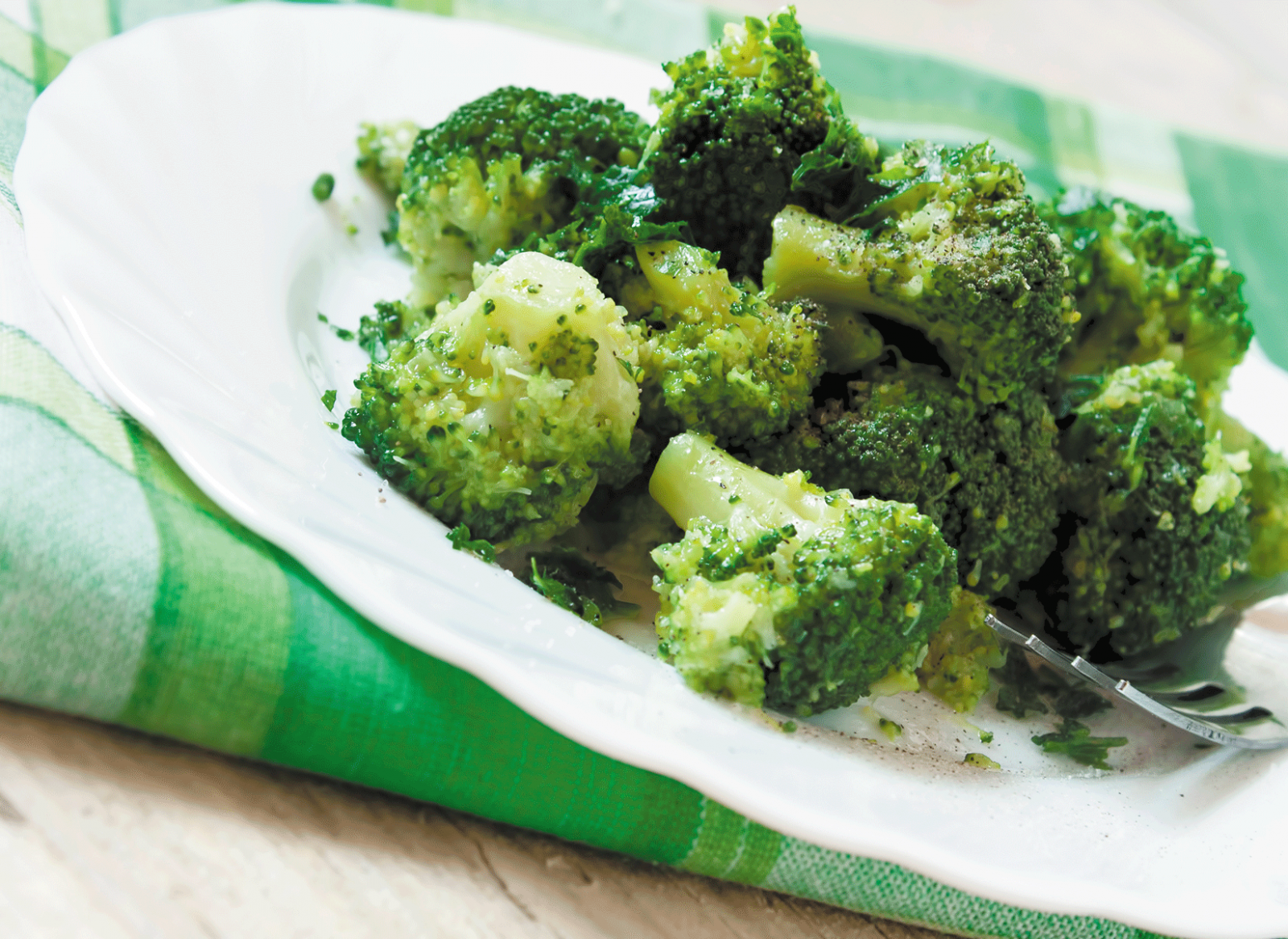
5 timeless habits for better health

What are the symptoms of prostate cancer?

Is your breakfast cereal healthy?

When pain signals an emergency: Symptoms you should never ignore

Does exercise give you energy?

Acupuncture for pain relief: How it works and what to expect

How to avoid jet lag: Tips for staying alert when you travel

Biofeedback therapy: How it works and how it can help relieve pain

Best vitamins and minerals for energy

Should you take probiotics with antibiotics?
Staying Healthy Archive
Articles
The Nordic diet: A northern twist to the Mediterranean diet
Image: iStock
With a focus on whole grains, berries, and fish, Northern European cuisine has some heart-friendly features.
If you've never heard of the Nordic diet, you might imagine a plate of those Swedish meatballs sold at Ikea. In fact, this eating style focuses on healthier fare, including an abundance of the plant-based foods nutritionists always encourage us to eat. And while the data are limited so far, some studies suggest that following a Nordic eating pattern may foster weight loss and lower blood pressure—both of which are good for the heart.
Interval training: A faster route to a stronger heart?
Image: Thinkstock
Short bursts of intense exercise may help build heart fitness. But run the idea by your doctor before you begin.
Want to add some variety to your exercise routine and finish your workout a little faster? Consider interval training, which alternates short, intense bouts of exercise with longer periods of lighter, less vigorous activity. The potential payoff may be enhanced cardiovascular fitness in less time.
Helping your heart: There's an app for that
Image: iStock
Smartphone apps encourage you to take an active role in monitoring and boosting health.
When it comes to healthy hearts, technology is playing a greater role than ever, and not just in the doctor's office. Now nearly anyone can use computer programs designed to improve heart health, thanks to downloadable applications (apps) for smartphones, tablets, and home computers. They're part of a trend known as mobile health or mhealth. "In general, health apps can provide very valuable information, as long as you understand their limitations," says Dr. Randall Zusman, a cardiologist with the Corrigan-Minehan Heart Center at Harvard-affiliated Massachusetts General Hospital and a Harvard Medical School associate professor.
3 health strategies to help you get through the holidays
Image: Thinkstock
Plan now to help prevent overeating, trips to the hospital, and depression.
The winter holidays are supposed to be a joyous time, filled with celebration. But they come with health risks, such as loneliness and depression, overeating, weight gain, falls in icy weather, foodborne illness, and heart problems. Here are ways to protect yourself while enjoying the season.
Tools to make your life easier
Image: Thinkstock
Little gadgets such as weighted utensils or shirt buttoners make a big impact on daily living.
As we age, our dexterity and fine motor skills tend to diminish. That makes it hard to perform simple tasks, such as but-toning a shirt or writing a letter. Add in some physical challenges such as arthritis, injury, or stroke, and older adults can easily lose the ability to care for themselves. "Being able to perform one's activities of daily living is often the difference between living independently at home or needing others to provide assistance, either at home or in a group living facility," says geriatrician Dr. Suzanne Salamon, an instructor at Harvard Medical School.
The year in medicine
Image: Thinkstock
New drugs and new thinking on fats and cholesterol may change the way you live.
The year 2015 was filled with medical discovery and innovation. The developments that got our attention were in the areas of lifestyle, medication, and food. "We've known for decades that certain healthy lifestyle practices reduce a per-son's risk of various diseases. Several studies in 2015 underline this message and demonstrate just how much benefit there can be," says Dr. Anthony Komaroff, editor in chief of the Harvard Health Letter.
Does hearing loss boost death risk?
News briefs
A recent study suggests that the more hearing impairment you have, the more your health may be at risk. A study published online Sept. 24, 2015, by JAMA Otolaryngology–Head & Neck Surgery found that mild hearing impairment was linked with a 21% increased risk of death, and moderate-to-severe hearing impairment was linked with a 39% increased risk of death, compared with people who did not have hearing loss. Researchers combed through large surveys of about 1,700 adults ages 70 or older who had undergone hearing tests and adjusted the results for heart disease and other risk factors. "The findings do not indicate that hearing loss causes an increase in mortality, or that hearing aids might reduce that risk. Instead, age-related hearing loss reflects accumulated stresses and damage of a lifetime, so perhaps we should not be surprised that hearing loss is not the only health impact of those stresses," says Dr. Steven Rauch, an ear, nose and throat specialist and the medical director of the Harvard-affiliated Massachusetts Eye and Ear Balance and Vestibular Center.
Not all vegetables aid weight control, Harvard researchers find
Image: Thinkstock
News briefs
Adding more fruits and vegetables to your diet is a good idea for many reasons, and weight control is one of them. But some vegetables are associated with weight gain, according to a Harvard study published Sept. 22, 2015, in PLOS Medicine. Researchers analyzed weight and diet changes in about 118,000 people over 24 years, at roughly four-year intervals. On average, people who increased their intake of fruits (especially berries, apples, and pears) and most vegetables, especially high-fiber, low-glycemic-load vegetables such as broccoli and Brussels sprouts, lost a little weight. In contrast, people who ate more starchy vegetables—peas and corn, for example—tended to pack on more pounds over time. This didn't prove that certain vegetables caused weight gain. "But we suspect the association may have something to do with the fact that starchy vegetables have a high glycemic load, meaning they spike blood sugar more than other foods," says Dr. Monica Bertoia, a Harvard Medical School instructor and lead author of the study.
Air pollution and heart disease
Image: Thinkstock
Ask the doctor
Q. I live near a busy highway. Are there any heart risks from air pollution?
A. Yes. More than two decades of research has shown that air pollution can trigger heart attacks, strokes, and irregular heart rhythms, particularly in people who have or are at risk for heart disease. The most dangerous pollutants appear to be very tiny particles less than 2.5 micrometers in diameter, which the Environmental Protection Agency reports as PM2.5. These particles come from car and truck exhaust, power plants and other industrial sources, wildfires, and wood-burning stoves.

5 timeless habits for better health

What are the symptoms of prostate cancer?

Is your breakfast cereal healthy?

When pain signals an emergency: Symptoms you should never ignore

Does exercise give you energy?

Acupuncture for pain relief: How it works and what to expect

How to avoid jet lag: Tips for staying alert when you travel

Biofeedback therapy: How it works and how it can help relieve pain

Best vitamins and minerals for energy

Should you take probiotics with antibiotics?
Free Healthbeat Signup
Get the latest in health news delivered to your inbox!
Sign Up











